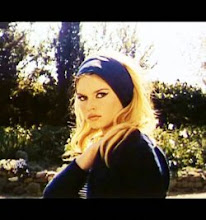location: at the Lifetime Screening Room in Columbia Dodge Hall, part of the Carla Kuhn Series, and presented by FOCUS (Filmmakers of Color United in Spirit)

The film has already received a lot of press because of its ecstatic reception at both Sundance—it won the Audience Award, Grand Jury Prize, and Special Jury Prize—and Toronto, where it won the People’s Choice Award. Oh, and it goes without saying that the media standing of the main financial investors (Tyler Perry and Oprah Winfrey) did not hurt the reception, either. Although less influential, Mariah Carey and Lenny Kravitz’s presence probably heightened hype as well.
The story revolves around a character who is, at first, hard to like at first: a self-loathing overweight teenager named Clareece Precious Jones. She is referred to mostly as “Precious,” which is ironic given the brutal treatment she experiences throughout the film’s narrative span. There isn’t a single type of abuse Precious has not been subjected to—physical, sexual, verbal—and though it is a nasty thought, it makes one wonder, “why the hell is she living?”
Her mother (Mary, with a miraculous performance by Mo’Nique), who is the source of most of Precious’ unhappiness, throws glass at her, forces her to eat unwanted food, and discourages her from a better education. Mary’s former boyfriend, and Precious’ father, impregnated the sixteen year-old with not one, but two children, and the first child is severely retarded (they simply call her “Mongo,” short for “Mongoloid,” which is the politically incorrect term for Down Syndrome).
The school principal places Precious in an alternative school, “Each One, Teach One,” and it is within this locus that Precious begins her so-called transformation. There is nothing special about this school, unless you count the pretty teacher (with the strange name of Blu Rain), and petty arguments that are tossed back and forth between the other GED students. The girls are so different from one another, one wonders whether they will ever make nice, but they are unified under the one belief that learning to read and write better can, and will, change their lives.
Perhaps it would give the film more justice if I read the original novel by Sapphire. I withhold any critical judgments simply because I do not believe I am in the place to make any. Simply put, I cannot relate to the characters in the film in any way. If anything, I recommend any viewer ready to pour the eyes out, or to watch the performance of Mo’Nique, who really stole the show.

No comments:
Post a Comment